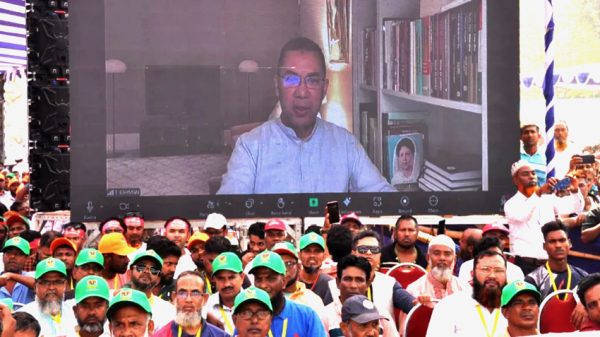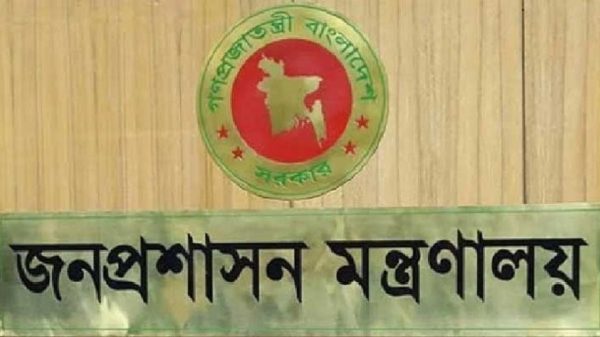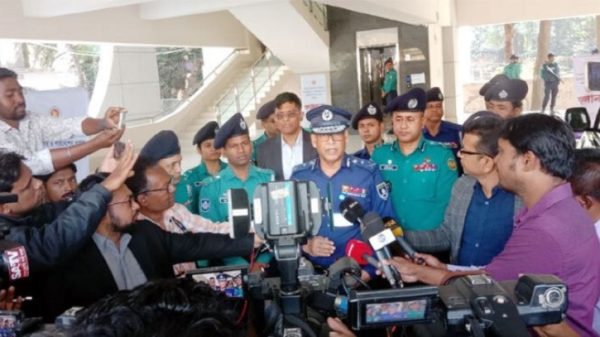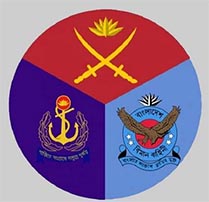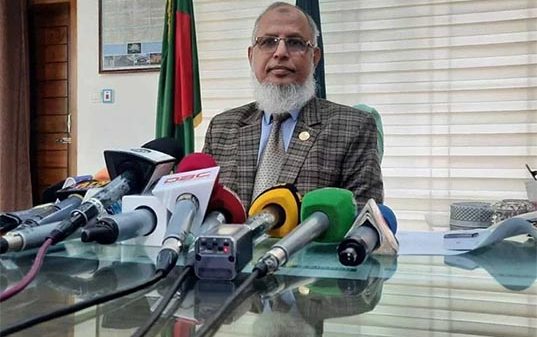‘I’m not familiar with the word syndicate’

- Update Time : Monday, 15 January, 2024, 02:57 pm
- 105 Time View
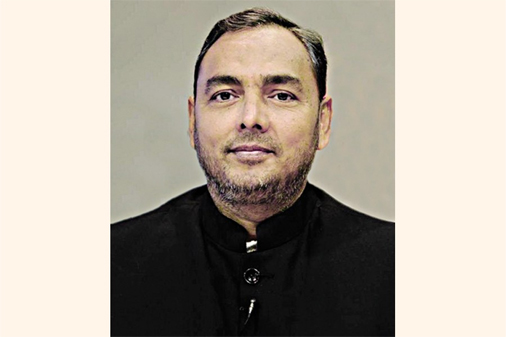
Online Desk: State Minister for Commerce Ahsanul Islam Titu has warned that the government would take tougher measures against illegal hoarding of essential items and would not tolerate any attempts to create artificial supply crises.
Speaking at a press briefing on his first day in office, Mr Titu said that he was familiar with the word ‘market syndicate’ — an often used word referring to illicit market practices, and would do ” whatever is necessary” to stop it.
In the briefing, the state minister announced the formation of a team with representatives from the finance, agriculture, food and fisheries and livestock ministries to work collaboratively on stabilising the essential goods market.
He requested time, assuring, “I will work in the public interest, not to protect the interests of any individual business owner.”
The state minister pledged to take “supreme action” against anyone found involved in hoarding or creating artificial shortages of essential commodities.
He admitted that some unscrupulous businesses engage in such practices during Ramadan, saying: “We see that some businessmen do such activities during Ramadan in the name of business. We will not call them businessmen.”
Mr Titu talked about transparency and accountability for traders, particularly for those dealing with daily essential commodities like oil, sugar and salt.
He said, “Traders concerned must conduct their business within transparency and accountability.”
He also touched on several initiatives to stabilise the essential goods market, including smart market management, commodity exchange and ration-like system.
“We will make every effort to ensure a sufficient supply of key essential items in the market so that essential goods remain readily available,” said the state minister.
He clarified that commodity prices would be regulated through smart market management, not through fear-based control.
Besides, Mr Titu said that the planned smart market management system, likely to be introduced this year, will try to bridge the gap between consumers and producers by reducing delivery times.
The state minister hoped to establish a commodity exchange within the next six months, subject to approval from the Bangladesh Securities and Exchange Commission (BSEC).
Regarding consumer access, he mentioned considering a ration-like system for necessary items.
While responding to a question, the state minister said data from 10 million families under TCB is being scrutinised for smart card issuance. Some cards have already been issued, with the remaining expected to be ready by June.
During the month of Ramadan, the state-run TCB will sell five types of key essential goods in two phases.
“We have to import products from India,” he said, adding that “necessary negotiations are underway with our neighbour. We hope to make importing essentials from India, from onions to daily necessities, smoother and more convenient for all, while simultaneously fostering improved relations.”
He said he plans to visit major business groups next week. “We will listen to their concerns during these visits.”
Senior Commerce Secretary Tapan Kanti Ghosh, along with top representatives from various public agencies, including TCB, EPB, Directorate of National Consumers’ Rights Protection (DNCRP), and other senior commerce ministry officials, were also present at the briefing.

